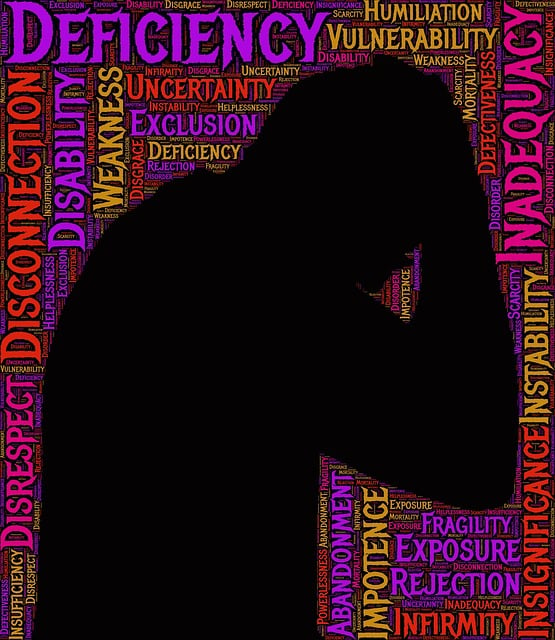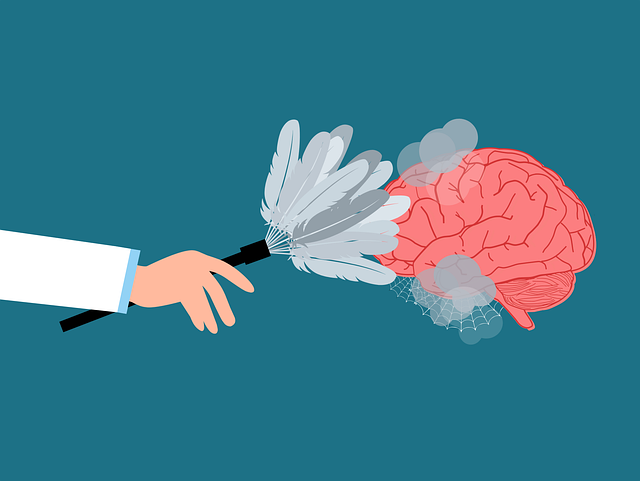Cultural sensitivity in mental healthcare, particularly through evidence-based practices like Boulder Exposure and Response Prevention Therapy (BERP), is vital for effective treatment and building trust. Therapists must recognize cultural influences on mental illness experiences and adapt strategies accordingly. Integrating culturally relevant techniques ensures exposure exercises align with individual backgrounds, fostering inclusive care. Continuous learning through cultural competency training empowers professionals to navigate diverse beliefs and communication styles, enhancing patient outcomes and creating a more inclusive healthcare system.
In the diverse landscape of mental healthcare, cultural sensitivity is paramount. This article explores essential aspects of providing culturally competent care, focusing on strategies to enhance patient outcomes. We delve into the significance of understanding cultural nuances, particularly through innovative approaches like Boulder Exposure and Response Prevention Therapy (BERP). By addressing challenges and leveraging effective strategies, mental health professionals can foster inclusive practices that resonate with diverse patient populations.
- Understanding Cultural Sensitivity in Mental Healthcare
- Boulder Exposure and Response Prevention Therapy: A Cultural Approach
- Challenges and Strategies for Culturally Competent Practice
- Enhancing Patient Outcomes through Cultural Awareness
Understanding Cultural Sensitivity in Mental Healthcare

Cultural sensitivity in mental healthcare involves understanding and respecting the diverse beliefs, values, and practices that shape individuals’ experiences with mental illness. It’s about recognizing that every client brings their own unique cultural lens to therapy, which can significantly impact their presentation of symptoms, coping mechanisms, and expectations from treatment. In the context of Boulder Exposure and Response Prevention Therapy (BERP), a evidence-based approach designed to help clients manage anxiety and phobias, cultural sensitivity is paramount. BERP therapists must be adept at tailoring their strategies to incorporate culturally relevant techniques, ensuring that exposure exercises and prevention tactics resonate with each client’s background.
This nuanced understanding goes beyond mere awareness; it requires therapists to actively engage in self-awareness exercises to recognize their own biases and preconceptions. By integrating Mental Health Policy Analysis and Advocacy into their practice, therapists can further ensure they are working within a framework that supports the diverse needs of their clients. Moreover, through the creative production of a Mental Wellness Podcast Series, therapists can build cultural bridges by sharing stories, insights, and resources that resonate with a wide range of listeners, fostering an inclusive environment for mental healthcare.
Boulder Exposure and Response Prevention Therapy: A Cultural Approach

Boulder Exposure and Response Prevention Therapy (BERP) is a culturally sensitive approach that has gained recognition in mental healthcare. This therapy technique focuses on helping individuals confront and manage their fears and anxiety through gradual exposure to stressful situations, while simultaneously teaching them new coping strategies. What sets BERP apart is its emphasis on cultural considerations, ensuring that treatment plans are tailored to an individual’s unique background and beliefs. By incorporating empathy building strategies, therapists can create a safe and supportive environment, fostering trust and encouraging open communication.
Incorporating aspects of self-care routine development for better mental health, BERP empowers clients to take control of their well-being. Through exposure therapy, individuals learn to reduce stress and anxiety responses, eventually breaking the cycle of avoidance. This approach has proven effective in treating various conditions, such as phobias, obsessive-compulsive disorders (OCD), and post-traumatic stress disorder (PTSD). By combining cultural sensitivity with evidence-based practices, BERP offers a transformative path towards healing and improved mental health outcomes for diverse client populations.
Challenges and Strategies for Culturally Competent Practice

Cultural sensitivity is paramount in mental healthcare, as it ensures effective treatment and fosters trust between providers and clients from diverse backgrounds. One of the primary challenges in achieving culturally competent practice lies in navigating the vast array of cultural beliefs, values, and communication styles that exist worldwide. For instance, a client from a community with strong familial bonds may require a collaborative approach involving family members, contrasting with an individualist culture where personal privacy is paramount.
To overcome these hurdles, healthcare providers should engage in continuous learning through training programs focused on cultural competency. These initiatives can equip professionals with knowledge about different cultural contexts, enhancing their ability to offer tailored care. For example, the Boulder Exposure and Response Prevention Therapy (BERT) approach, which encourages clients to confront fears in a controlled setting, may need adaptation for cultures where direct confrontation is less acceptable. Effective communication strategies, self-care practices, and a willingness to learn from clients are key tools to enhance cultural sensitivity.
Enhancing Patient Outcomes through Cultural Awareness

In today’s diverse society, cultural sensitivity is paramount in mental healthcare to enhance patient outcomes. Understanding a patient’s cultural background goes beyond basic demographics; it involves recognizing their unique values, beliefs, and traditional healing practices. This awareness enables healthcare professionals to tailor their approach, ensuring that exposure therapy techniques, like Boulder Exposure and Response Prevention (BERP), resonate with the patient’s framework for understanding trauma and anxiety.
By integrating emotional well-being promotion techniques and resilience-building activities sensitive to cultural context, mental health practitioners can create a safe space for patients to confront and overcome challenges. Moreover, organizing stress management workshops that incorporate culturally relevant coping mechanisms fosters a deeper connection between therapist and client. This holistic approach not only improves individual outcomes but also strengthens the therapeutic bond, ultimately contributing to a more inclusive and effective mental healthcare system.
Cultural sensitivity in mental healthcare is no longer a consideration, but an essential practice. As diverse communities continue to grow, it’s crucial for therapists to understand and navigate cultural nuances to provide effective treatment. The integration of Boulder Exposure and Response Prevention Therapy (BERP) offers a culturally competent approach, addressing unique challenges faced by diverse populations. By enhancing patient outcomes through awareness and adaptive strategies, healthcare providers can foster a more inclusive environment, ensuring equitable access to quality mental health care for all.














